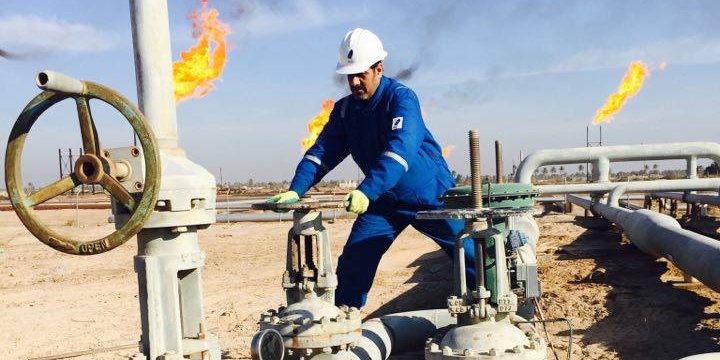Oil companies face critical new Iraqi regulatory hurdles
If they don't comply, companies risk major consequences — including payment delays, visa problems, and exclusion from tenders.
A Basra Gas Company worker at the Nahr Bin Omar oil field takes part in the opening of a new pipeline sending gas to the national network on Jan. 12, 2017. (JASSIM AL-JABIRI/Iraq Oil Report)
International oil companies, oil service companies, and other contractors in Iraq are at risk of major disruptions — including payment delays and problems moving personnel — due to newly enforced government policies.
The oil sector has long enjoyed a de facto exemption from some Iraqi regulations, including Ministry of Labor requirements associated with social security and work permits.
Login to your account
Subscribe for news access
Annual News subscribers receive access to the full archive of Iraq Oil Report articles.





